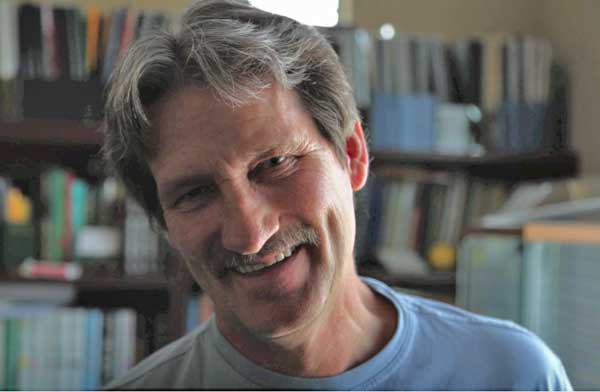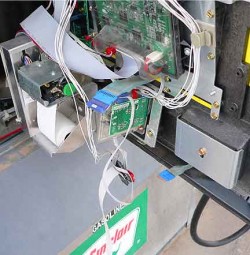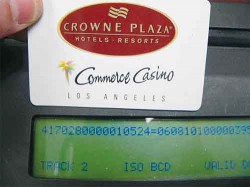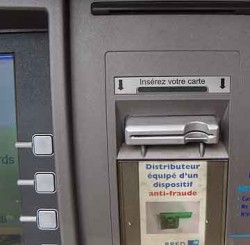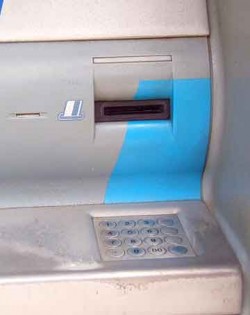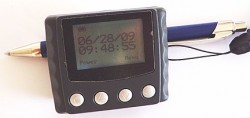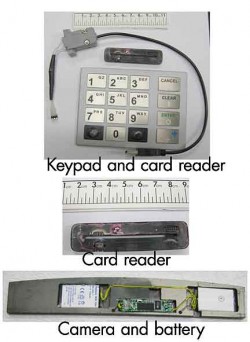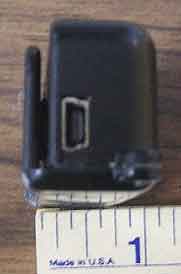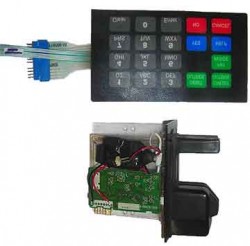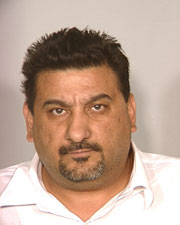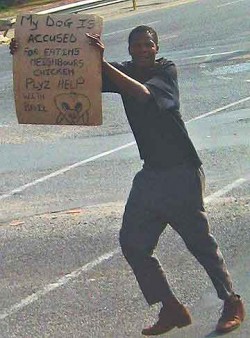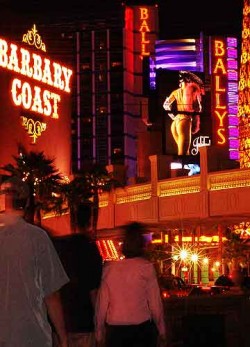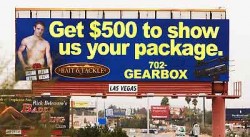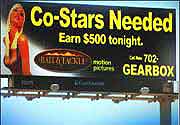
They’s ony three kinda men I won’t play with: That’s a po’ man, a blind man, an a police-man!
Rod the Hop, my Las Vegas three-card-monte informer, died last month, aged 56. He was a card tosser whose demonstrations proved that drills teach skills for life. He set up in areas with less police presence, favoring the sidewalks outside large factories, especially on payday, “where there’s eight hundred people going to lunch and they have to walk by you,” he said.
“A real good spot is outside military bases, where you’ve got a lot of young, naïve kids with nothing much to do and a little bit of money to spend.
“The moves are easy. You can learn it in a day and be good in a week. It’s the presentation that’s important. You have to have unflinching audacity and unmitigated gall. I don’t get intimidated.”
I love the way Rod spoke.
He was renown as a “card mechanic,” which is a card manipulator, as entertainment and teaching, and/or cheating in card games. As a card mechanic, Rod the Hop worked both ends. He was loved by the worldwide magic community; and had four felony convictions for casino cheating.
He was also renown as a “slot mechanic,” which could mean slot machine repairman but, in Rod’s case, meant he was a convicted slot machine cheat. Just last year he had the honor of becoming person number 34 in Nevada’s Excluded Person List, aka “the Black Book.”
He told us he tore apart and studied slot machines in his apartment, so he had to use a friend’s place as his “official” address so his parole officers wouldn’t find them.
Travelers may encounter three-card monte games anywhere. Players are purposely given a glimpse of the target early in the scramble, a skillful slip is performed by the tosser, and players thereafter carefully track the wrong object with confidence.
I’ve called three-card monte a “game” but, like the three-shell game, they’re games of no chance: tricks and traps. You’ll see other players win and walk away, but they are, in fact, shills. You cannot win. If you win once, it’s at the tosser’s pleasure in hope you, or someone in his audience, will bet big.
Advice from a three-card monte expert
In the words of Rod the Hop
The object of three-card monte is to make money. Each person in the crew gets an equal end. Some days it’s good and—it’s a street game so obviously you can only make as much money as what a person has in their pocket. But if you make two or three hundred dollars apiece a day, then you’ve done what you set out to do. Most of it has to do with grift sense, and your con and your presentation. That’s more than the skill factor, I would say.
It’s just a hustle. I mean, you just do the best you can and you prey on tourists or suckers that don’t know they’re breathing air.

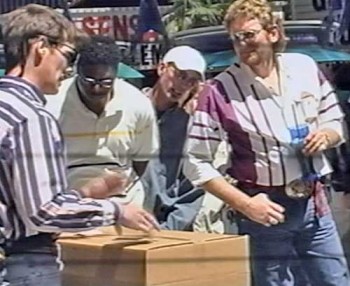
What I look for in a sucker is, they’ve got money, number one. And that they’re a sucker. I don’t have a conscious thought pattern that goes through my mind when I see a sucker. I know a sucker when I see one. I just do. I’ve been doing it so long, I know a candy bar when I see one. That’s all there is to it.
But by the same token, I know someone that’s not a sucker, or might be a cop, or somebody that knows the game. I can just feel it. I just know a sucker when I see one and my crew does too. You know that when you pick a crew. I don’t go out and say, yeah, he looks like a pretty good thief and has a lot of grift sense, I’ll get him. The deciding factor whether you have a good crew or a bad crew is how much grift sense all your partners have. But most of the time you’re not going to hook up with someone that doesn’t have grift sense.
You’ll find the game in the back of buses, train stations, things like that. Very seldom do you see it in the streets, cause if it’s windy it’ll blow the cards open.
I used to go outside a factory. Believe it or not, all you have to do is set up a box and start throwing cards and people will just stop by to see what you’re doing. You don’t have to say anything. Then you start betting with the shills. And pretty soon people get to realize that it’s a betting game. I’ll keep throwing it, and my shills will be betting, and they’ll be winning and the sucker sees them winning, and so they want to bet. And I might even let the sucker win some if I see other suckers that might have more money.
So, the red card’s on the bottom of the two cards and the black card’s on top. When I throw the cards down, I’ll throw the top card instead of the bottom card, which is the red card. But first, just to get into the rhythm of it, I’ll do it for real. I’ll throw the red card on the bottom, and let them watch where it is, very slowly, and they’re watching and wondering where the red card is. And there’s no question where the red card is.
And they’ll want to bet, so I’ll say, well here, let me do it again. And then I’ll pick them up and they’ll say, oh gosh, I was right. I knew where the red card was. And then I’ll do it again, and now they’ll want to bet. When I don’t want them to win is when I’ll throw the top cards. And then obviously they’ll lose.
You would think that a normal person would think, wait a minute, I knew where the red card was. I bet on it and I lost. Why? Well you’d think a guy would just quit. But no, not suckers. Suckers go, ‘wait, this time I’m really going to watch him.’ And then they’ll bet more money, and it just goes on and on until they don’t have any more money. So I try to entice as many suckers as I can to bet on it. Then, when everybody’s out of money, I take the cards, stick them in my pocket, and walk away. And then we’ll go somewhere else.
I’m where there’s people. Where there’s people there’s money, and where there’s money there’s me. And that’s where you do con games. You can’t do it if there’s no customers. Where there’s people, there’s suckers, and where there’s suckers, there’s people like me.
The reason people try to beat this game is because of the skill of the operator. It’s my presentation. I say, ‘look, I want to show you something.’ First off, I say ‘this isn’t three-card monte.’ Because then you’re thinking, this is not three-card monte. I tell them that you win on the red and you lose on the black. Now watch. Here’s a red card. I’m just going to set it right there. Then here’s a black card and I want to set it right there, and just switch them. Now where’s the red card? Will you bet on something like that? Well sure you would, if you were a betting man. But if you’re not a betting man, you’re not going to do it.
And this is a cliché that everyone uses, that you can’t beat an honest man. Well, you can’t beat someone that’s not trying to win your money. You can remember that. As a hustler, and doing the three-card monte, I cannot get my money from someone that’s not trying to get my money first.
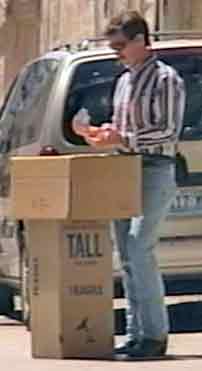
This is a real old game, this three-card monte. I know it’s at least a hundred years old. It’s in a book a hundred years old, published in 1902. But each generation that’s never seen it before thinks they can beat it. There will always be suckers.
Look, three-card monte is a great little hustle in the street. And frankly, I don’t do it any more because there’s not enough money in it for me. It’s only as good as how much money a person has in their pocket at that time—right now. How many people walk around nowadays with eight hundred dollars in their pocket, or a thousand? Or even three hundred? You know what they got? They got about six dollars and fourteen credit cards. That’s what people have nowadays. They don’t carry around cash. The only people that carry cash nowadays are criminals.
The one good thing about three-card monte and the three-shell game and the short cons like that, is it’s a good training ground for con men, for grifters. It’s a prep school, if you will. Most people grow out of it.
If you’re a tourist and you see a three-card monte, don’t stop and look at it and think, well I know that he throws the top one sometimes and maybe sometimes he throws the bottom one, or whatever. I’m telling you right now. Do not play it. Cause it’s a guarantee, you cannot win. It’s simple as that. And that’s my advice. I can promise you, you cannot beat it. Just go on down the road when you see it.
Like Rod the Hop, Bob Arno, the famous pickpocket, is also known in and has deep knowledge of the worlds of magic and crime. Watching Rod work, Bob was impressed with his coolness, his social-engineering, his roping-in of “suckers.”
I was impressed with his patter. Here are a few of his lines, usually delivered in a rapid-fire drawl while his hands were flying and his mind was sizing up potential marks:
“This here ain’t no three card monte, this here’s the Mexican pitti-pat, where you win on the red and you lose on the black…
“Watch me now, I’m gonna race ’em and chase ’em, so watch where I place ’em…”
“If you gotta lotta nerve and you gotta lotta plenty, five’ll getcha ten and ten’ll getcha twenty…”
“I’ve played this game with Yankees and Southerners, Senators and Governors. Money on the card or no bet, where’s the red? If I can bluff you I can beat you. Come on bet five, bet ten! Ho down now, get your chicken dinner in the center, where’s the red?…”
[Thanks to Paul Chosse, who thought to put these lines in writing back in 2005.]
Rest in peace, Roderick William Dee.
Adapted from Travel Advisory: How to Avoid Thefts, Cons, and Street Scams
Chapter Eight: Con Artists and Their Games of No Chance

